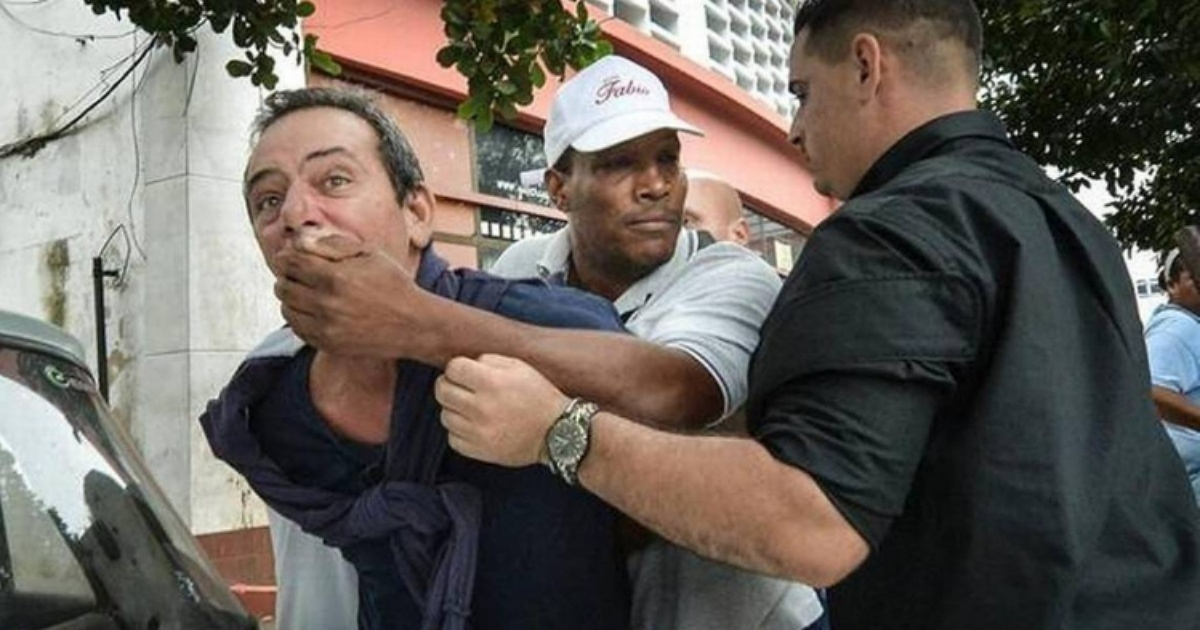
Cuba is the country in Latin America with the most attacks onfreedom of the press, according to the most recent Shadow Report from the Voces del Sur Network (RVS).
In the last year, 1,129 acts of harassment againstjournalists, points out theanalysis which was nourished by the compilation of the Cuban Institute for Freedom of Expression and Press (ICLEP).
The summary also points out that in almost all of these attacks the perpetrator turned out to be the Cuban State itself.
The figure also represents an increase of 228% compared to 2020, the analysis adds.
Likewise, of the total attacks, 66% correspond to arbitrary arrests, 22% to Internet restrictions and 7% to attacks on individuals.
“On July 11, 2021, within the framework of anti-government protests, there were at least 50 arrests of journalists and media workers,” the investigation highlights.
“The presidency of Miguel Díaz-Canel gives continuity to the autocratic, violent and deeply undemocratic political project that has been cemented in more than 60 years of government in the Cuban nation,” maintains the RVS assessment.
The report also highlighted that "although the laws explicitly prohibit the existence of the independent press, various media outlets defy the prohibition to report on what is happening on the island."
The conclusions of the report point out that the repressive scenario in Cuba has led to positions of “self-censorship and exile” in an unprecedented number and that “at the institutional level, changes are taking place in the legal framework, to facilitate and justify the actions of state forces in instances such as arbitrary detentions.”
The RVS report highlights the case of journalist Lázaro Yuri Valle Roca, sentenced to five years in prison for alleged crimes of enemy propaganda and resistance.
In addition, it warns about dozens of journalists who faced, without a court order, house arrest for long periods of time during 2021, especially after the 11J protests.
After this analysis, the RVS recommended to the island's government that "they must repeal repressive laws and instruments of the institutional machinery that prohibit freedoms of the press, expression, and association, and serve to structurally censor and repress."
The organization also urged the international community to advocate for the release of journalist Valle Roca, influencer Yoandi Montiel (the Cat of Cuba) and all people prisoners of conscience in Cuban prisons.
At the regional level, in the last year 4,930 alerts were documented for violations against freedom of expression and of the press and the right of access to information in 14 Latin American countries.
The balance presented by RVS confirms a devastating increase in cases of threats and restrictions on freedom of expression in the region, especially in Cuba, Nicaragua, Colombia and Mexico, noted on Twitter the director for the Americas of Amnesty International, Erika Guevara-Rosas. .
In the last week, also the Mexican non-governmental organizationArticle 19 reported on themore than 200 attacks on journalists and activists in Cuba during the first half of 2022.
In total, they committed125 attacks against 61 journalists (28 women and 33 men) and 90 attacks against 51 human rights activists(23 women and 28 men), the NGO specified through the report“Freedom of expression in Cuba: semiannual analysis in figures from January to June 2022”.
The most common attacks against independent journalists were house arrests with 45 events, official summonses (20), suppression of internet service (16) and arbitrary arrests with 14 events of this type, the report states.
Meanwhile, the most frequent attacks against activists were arbitrary arrests with 40 events, 10 deprivations of people's freedom due to events linked to 11J 2021, 10 house arrests, eight immigration regulations and four people who claimed to have been tortured
Article 19 considers that these attacks represent “acontinuation of the demobilization and intimidation strategy against those who carry out coverage of daily life in Cuba and as a continuity of the effects of the protests of June 11, 2021.”
In this way, house arrests, in the case of journalists, remain a fundamental control tool, while subpoenas are classified as a warning resource, during which legal proceedings are threatened.
Restrictions on Internet access have increased as a way to hinder information work within the country, while arbitrary detentions have been an element in decline due to the reaction it provokes in spaces critical of the Cuban regime.
From a geographical point of view, 71% of the attacks against journalists were concentrated in Havana, the remaining 29% were distributed among nine other provinces.
In the case of activists, 67% of the attacks are concentrated in Havana, then 21% of the attacks are in Villa Clara and the remaining 3% are distributed among seven different locations.
Recently, the Cubalex organization also condemned the threats and coercion of State Security against independent Cuban journalists,forcing them in recent times to abandon their jobs.
Cubalex highlighted thatresignations are not spontaneous and in all of them a pattern is observed in which phrases such as: “Under pressure and blackmail we have been forced to cease our project” prevail; “I leave because others force me”; “I will not be allowed to leave the country until I meet certain conditions required by State Security.”
What do you think?
COMMENTFiled in: